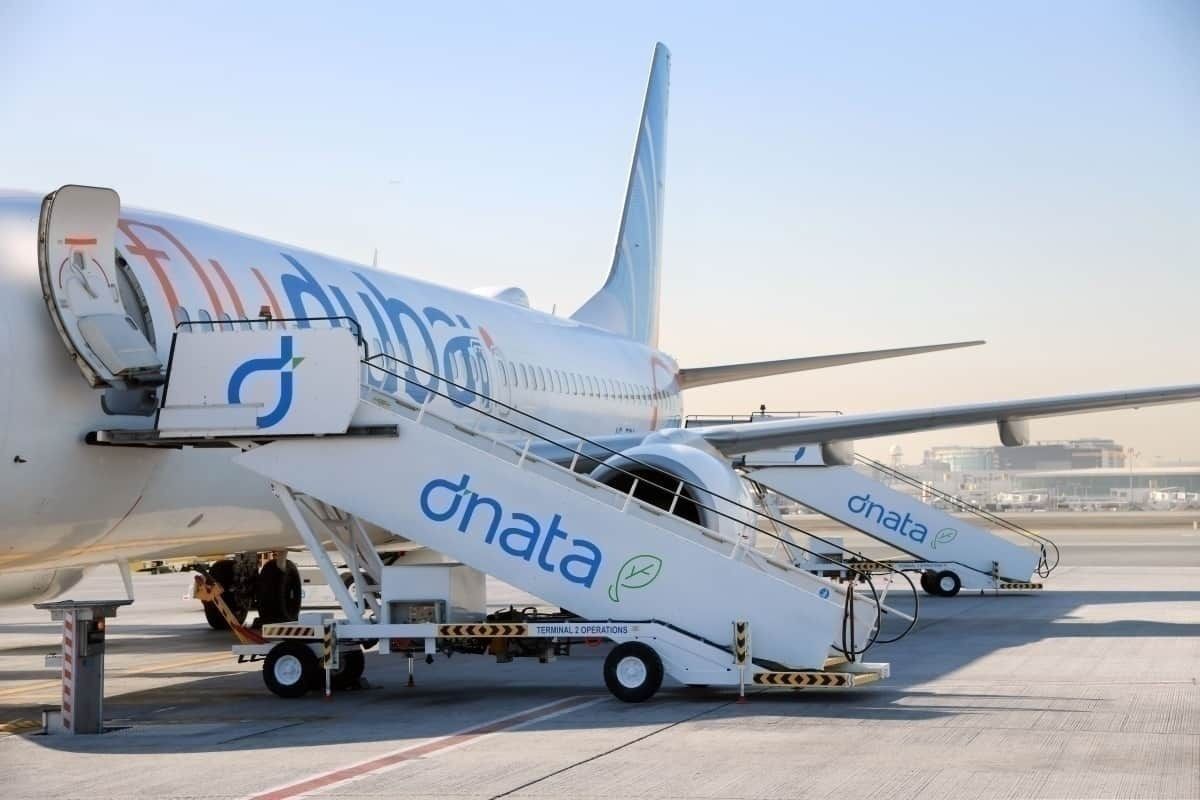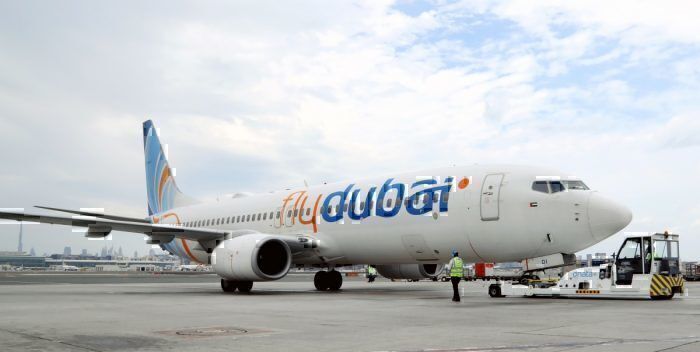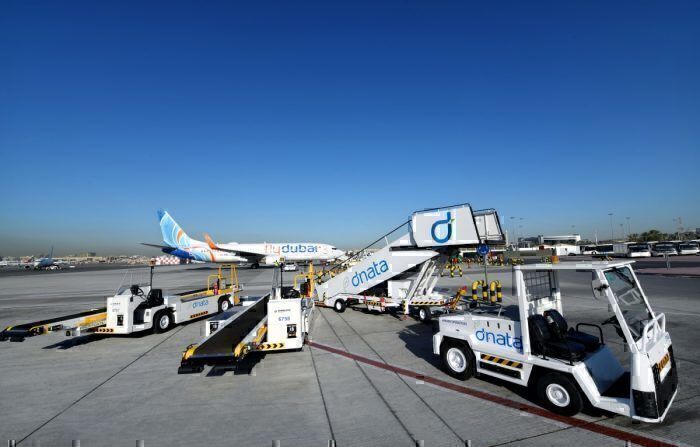dnata, the ground support division of The Emirates Group, has successfully completed a ‘green turnaround’ at Dubai International Airport's Terminal 2. The ground handler used only zero-emission ramp ground support equipment (GSE) during the turnaround of a flydubai Boeing 737-800.
Passengers on flydubai’s Karachi and Faisalabad flights may have been unaware that they were a part of a step towards a more sustainable future. Passengers boarded and disembarked onto towable stairs which were pushed using electric towbarless tractors operated by dnata’s expertly trained crew.
All bags were transported by similar electric tractors and were loaded and offloaded by electric conveyor belt. All electric power was supplied by Dubai International's FEGP (Fixed Electrical Ground Power) to minimize CO2 emissions.
FEGP systems allow ground crew to tap into the airport's main power supply rather than relying on auxiliary power units (APU). According to Aviation Benefits, Nice Côte d'Azur Airport installed FEGP power systems in 2014 and have been cutting CO2 emissions every year since.
Similarly, Barcelona airport uses FEGP’s until five minutes before a plane leaves, thereby saving 58,000 tones of CO2 per year. Heathrow Airport saves 100,000 tonnes per year and Zurich saves 33,000 tonnes per year. By using the mains power, dnata was able to minimize CO2 emissions when powering their electric equipment.
In a statement, HH Sheikh Ahmed bin Saeed Al Maktoum, chairman of Emirates Group, flydubai and Dubai Airports, said,
“The green turnaround, involving a collaborative effort from airline, ground handler and airport operator, highlights Dubai's commitment and ability to make a difference by using resources in a sustainable manner.”
dnata’s green future
This is not dnata’s first foray into more sustainable operations. It currently has over 100 eco vehicles operating at two of Dubai’s airports. It has also been working to ensure its fleet of ramp vehicles and forklifts are hybrid or electric as well as working to refurbish old equipment. This has led to a decrease in CO2 emissions and reduced waste. It recently stated that it is aiming to make all passenger handling operations entirely electric at the Dubai World Central Airport over the course of 2020.
dnata has also joined the small group of airlines and providers to ditch single-use plastics. Something which is becoming increasingly common in the industry. It has implemented several initiatives to reduce its carbon footprint and offset some of the emissions that come as part and parcel of working in the aviation industry.
Recently, all dnata staff were given reusable water bottles and a network of water ‘igloos’ were set up to allow staff to refill their bottles. Over summer, it’s estimated that the services provider saved almost 1.2 million water bottles.
Is it enough?
The race to be known as environmentally friendly has led to many improvements within the aviation industry. But is publicity surrounding new environmentally friendly initiatives just a marketing ploy to attract more customers? While dnata is right to celebrate their green turnaround, and this is certainly a step in the right direction, calling it a "significant milestone" seems over-enthusiastic.
dnata may be the first to successfully use the mains power supply to achieve a green turnaround, but surely others should follow suit soon? With the FEGP power supply available in many airports worldwide for over five years, and electric vehicles becoming more popular, this feels like a natural progression for all airport operators.
dnata took the first step, and their forward-thinking planning for a fleet of electric vehicles is commendable, but perhaps not as revolutionary as they seem to believe. With airlines now publicly demonstrating their commitment to reduce single-use plastic and offset carbon emissions, the benefit of being perceived as environmentally friendly is clearly good for business.
What do you think? Are airlines and airport services only providing greener alternatives in order to please environmental aware customers? Are greener alternatives just a marketing ploy are they making a real difference? We’d love to know your thoughts in the comments below.




